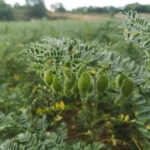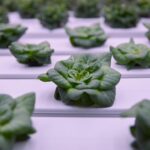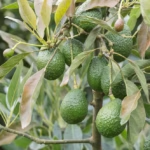Intellectual property protection is an important aspect of agroprocessing, as it enables companies to safeguard their innovations, technologies, and branding in the agricultural and food processing sectors. Here are some key points to consider when navigating intellectual property protection in agroprocessing:
- Patents: Patents can protect novel and inventive processes, methods, or technologies used in agroprocessing. They grant exclusive rights to the patent holder for a limited period, typically 20 years, preventing others from making, using, selling, or importing the patented invention without permission. It’s important to conduct a thorough patent search before filing a patent application to ensure your invention is unique and not already protected by existing patents.
- Plant Variety Protection (PVP): PVP is specifically relevant to agroprocessing involving plant breeding or genetic modification. It provides exclusive rights to breeders of new plant varieties for a specified period. PVP laws vary by country, so it’s crucial to understand the specific requirements and procedures in the jurisdictions where you seek protection.
- Trademarks: Trademarks protect brands, logos, or distinctive marks associated with agroprocessed products. Registering a trademark provides exclusive rights to use the mark and prevents others from using a similar mark in a way that could cause confusion among consumers. Conduct a comprehensive search to ensure your desired trademark is available and not infringing on existing trademarks before applying for registration.
- Trade Secrets: Agroprocessing companies often have valuable trade secrets, such as unique recipes, processing techniques, or formulas. Protecting trade secrets involves implementing confidentiality measures, non-disclosure agreements (NDAs), and restricted access to sensitive information. It’s crucial to establish proper internal protocols to maintain confidentiality and restrict access to trade secrets.
- Copyrights: Copyright protection can apply to certain creative works associated with agroprocessing, such as product labels, packaging designs, promotional materials, or software programs used in processing. Copyright arises automatically upon the creation of an original work and provides exclusive rights to the creator. However, registering copyrights can provide additional legal benefits, such as the ability to seek statutory damages and attorney’s fees in case of infringement.
- Licensing and Contracts: Agroprocessing companies can monetize their intellectual property through licensing agreements with other parties. Licensing allows you to grant permission to others to use your patented technology, trademark, or copyrighted works in exchange for royalties or other forms of compensation. It’s important to carefully negotiate and draft licensing agreements to protect your intellectual property rights and define the terms of use.
- International Considerations: Intellectual property protection varies across countries, so if you’re engaged in international agroprocessing activities, it’s crucial to understand the intellectual property laws and procedures in the countries you operate or plan to expand into. Consider filing for international protection through mechanisms like the Patent Cooperation Treaty (PCT) for patents or the Madrid System for trademarks, which provide streamlined processes for seeking protection in multiple jurisdictions.
Navigating intellectual property protection in agroprocessing can be complex, and it’s advisable to consult with intellectual property attorneys or experts with experience in the agricultural sector. They can provide specific guidance tailored to your business and help you develop a comprehensive intellectual property strategy.









